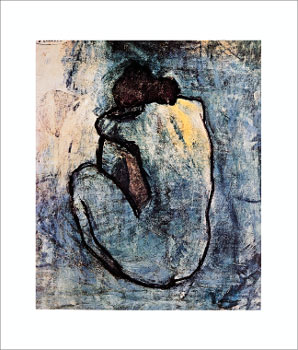I sometimes wonder which is more real the Kingdom or the immediate. I know, I know we are post-modern so let's say "and" instead of "or." But I think most approach it this way. Do we look at life from a perspective of progress or decay? Ironically, my tradition sees both, selectively. It says that Jesus is coming again in triumph and celebrates the decay of society to justify its eschatology. It says that the Kingdom is advancing and cites statistics of why the world is going to hell in a handbasket. It wouldn't be so bad if it would honestly say that it's speculating. No, the Israelis entering Lebanon is the start of Armageddon; for sure. Wait, the original Gulf War was the prophetic event including Apache helicopters that were prophesied in Revelation.
I sat in a Roman Catholic church yesterday while protestants fumed at the inaccurate theology being homolized. I admit that it struck me as sad that the sum of existence, the sum of God, was being a nice person to the priest. "Reflect and keep going" was his mantra, with nothing to reflect on except the symbols found in infant baptism. He spoke of faith, but there wasn't anything to have faith in except the government of the church. Jesus was a good luck emblem that was mysteriously consumed each week to fight off infection. But then we believe alter calls are found in the Bible and can't really figure out what to do with humanity prior to Jesus. We say the world is without excuse when each individual in judged yet feel guilt for not spreading the word quickly enough to keep people from hell. These are among the most important issues we can imagine and yet we don't grapple with their unknown qualities or incongruities or celebrate their mystery.
I am at dis-ease with my faith. It's not lost and it's not hurt. I'm just seeing inconsistencies and wondering how important they are. Perhaps the core of my faith is as strong, if not stronger than it ever has been, but a number of beliefs I count as faith have been held out with some speculation. My pastor made the claim today that his sermon was the word of God and that any discomfort with it meant we were being influenced by the Devil. This sounds cartoonish and disrespectful, but it's meant to be neither. What he said was biblical. It was practical and if followed would yield good fruit. Yet, I am confident that if he were giving the message to first century Christians, pieces of it would be unsettling. There would be elements that were so establish, it wouldn't be worth saying. There would be assumptions and cultural realities that wouldn't translate. There would be faith assumptions that came about through reading the Bible individually rather than collectively that wouldn't make sense. American dream-ism and consumerism as realities would pop-up as huge red flags. And yet, we are certain.
Below is an excerpt from an unbelieving man. He uses the Bible to try to make sense of history from a non-specific perspective. He is jaded and doesn't believe that it offers any hope other than the cycles of history being predictable. He doesn't believe in redemption, but I found myself meditating on his kingdom thoughts and wondering how honest we are in our relation to the Kingdom; in our understanding and participating in it:
I can smell the rotten blood seeping out of the wet ground. It is everywhere because of all the conquests. And it is here, also. We live in a world where eventually all the temples go to the torch, all the people go to spend time in Babylon, and the kingdom is never restored. This last is the rub. We keep licking this sore in our mouths and telling ourselves the kingdom will be restored. I part from Isaiah on this matter. I think we are already in the kingdom, ready or not. (Isaiah by Charles Bowden in Killing the Buddha...)
And the Kingdom is always the rub. How it is defined, who defines it, if it is there and simply needs to be found or is unfolding like a sheet in parallel to history. We were born into our story and ultimately are responsible for much of how it turns out. We have to grapple with realities bigger than the collective church can handle and ancient ways of God that really do make sense of the world. Instead of grappling we are told to memorize the script. We are told it never changes. Is this how St. Paul saw the faith - a series of orthodox belief statements to be held up and distanced from the world? In making disciples of all nations is Jesus saying we are supposed to tell the script as the truth rather than simply compelling the people to him so he can say whatever it is he wants? Do I trust that God has the world under his care sufficiently or do I need to programmize the believing process, package it, have it consumed, and feel good that that is enough?
The Bible came about ~300 years after Jesus. The Word became print in the 1400's and became ingrained as the primary means of knowing God and fighting heresy after the 1500's. In the 1500's Tyndale published a Bible for the people to free them. He was condemned, strangled, and burned because his Bible was considered too anti-clerical. In the 1600's politics interacted with scripture and the King James Version was born. The church has always had to grapple and sadly I fear that this reality, this beautiful gift, has become heresy to my tradition. Perhaps we are all a bit more like the pharisees than we would like to admit.



